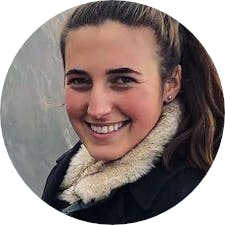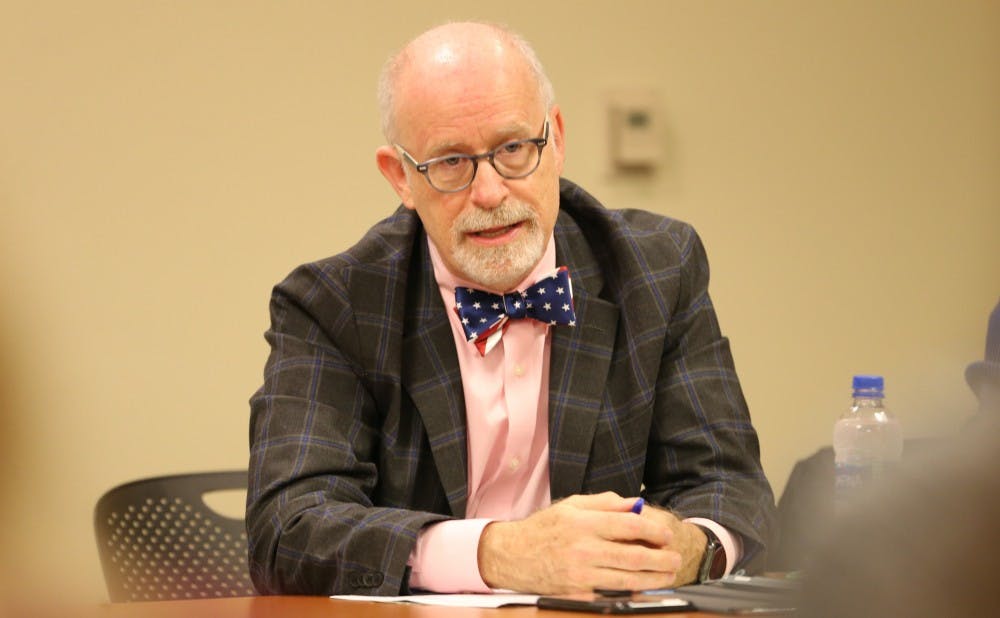As a lawsuit rages about the equity of Harvard's admissions process and affirmative action, Duke staff that oversee various stages of the student admissions process discussed integrity in admissions and recruiting at an event Wednesday evening.
Sitting underneath a banner with the Duke Community Standard written on it, the panel—hosted by the Honor Council—gave insight as to how to maintain honor when applying to Duke, graduate schools or jobs.
Christoph Guttentag, dean of undergraduate admissions, said that the people who stand out most to the admissions committee are those who clearly acted on the things that mattered to them, instead of simply putting on applications what they think Duke will be looking for.
“We need authenticity—presenting the best version of you,” said Chris Roy, pre-health advisor and associate professor of the practice in chemistry and education. “It is your experiences that make you the best applicant.”
Panel members diverged in their understandings of "honor," but they all agreed that having honor requires presenting an authentic version of oneself and having accountability.
“You’re only as good as your word,” Roy said.
Gerald Wilson, senior associate dean of Trinity College and pre-law advisor, emphasized that an honorable person will follow the rules, not think too highly of themselves and not make excuses.
Leanne Brown, assistant director of undergraduate programs and services in the career center, said that the cornerstones of honor were authenticity and simplicity.
"There is beauty to the simplicity of being authentic and sticking to the truth and taking the high road, even if you don’t get what you wanted,” she said.
Referring to her work with resumes, Brown said that embellishment on such documents is “never ethical and not necessary.”
Although her role does not explicitly include fact-checking the resumes that she works with, she will reach out to programs that a student has listed if something about the resume seems “off.” However, she emphasized that “everyone is doing cool stuff here [and] you just need to tell your true story.”
This idea of telling the “true story” is also central to Colleen Scott, director of the Baldwin Scholars program.
She said that the culture of “busy-ness” at Duke prevents students from thinking deeply on their experiences, resulting in applications that showed such a lack of reflection.
“[Honor is] a consistency between behavior and the values that are held in high esteem by culture or society,” Scott said, adding that she has seen candidates lie, which leads to even further issues if, when confronted, the candidate maintains their lie.
The panel recalled instances in which they found someone acting unethically, and how that person handled it, agreeing that it always better to come forward with mistakes than cover them.
Wilson said even making changes to an already-submitted application is the right decision, highlighting the importance of "full disclosure."
“The [American Bar Association] will check you out eventually,” he said. “if you are open with it and say you made a mistake, the law school admissions are very forgiving...Integrity is, and should be, at the heart of law school.”
Roy added that in the age of social media, it is easy to track one's internet records to verify important information.
“The world has gotten so much smaller,” he said.
Along with considering context, the admissions committee constantly undergoes implicit bias training. When considering applicants, they first look at the candidate as a complete individual, challenges and all. Only after that do they look at the applicant in the context of the University's goals, Guttentag said.
Guttentag described an aspect of randomness in the process. Roughly 90 percent of the time, the committee agrees about an applicant. However, the other 10 percent of the time, a decision could depend on who is presenting the application or chairing the meeting.
Brown said this applies to employment as well, that when you are at the “tip-top” as Duke students are, sometimes selection for a position can be purely a “numbers game.”
Guttentag said that out of the 528 early decision applicants for last year who were offered admission and indicated that they would be applying for financial aid, only eight did not enroll. He said that although committing to ED is a financial leap of faith, the ED process is still ethical and most families can get good estimates of the cost they will incur with the net price calculators Duke provides.
Get The Chronicle straight to your inbox
Signup for our weekly newsletter. Cancel at any time.

Maria Morrison is a Trinity senior and a digital strategy director for The Chronicle's 117th volume. She was previously managing editor for Volume 116.

